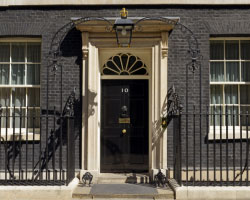On 12 May 2021, the latest issue of Private Eye magazine reported that the County Court had issued a county court judgment (CCJ) against one Boris Johnson of 10 Downing Street, i.e. the UK Prime Minister, for an unpaid debt of £535. No details about the unpaid debt or creditor were reported, only that the debt was still unsatisfied more than six months after the date of the judgment. On the government’s website, the guidance provided states that once a CCJ is issued it will stay on the Register of Judgments, Order and Fines for six years. The guidance also states that banks and loan companies use this information to decide whether to grant credits or loans.
The story was reported in several other news outlets and prompted a nationwide discussion about the nature of the debt. Some, perhaps jokingly, questioned whether John Lewis was the creditor providing fresh embarrassment in the ongoing story about the Prime Minister’s flat renovations. However, the story did break at a time when serious questions continue to be asked about the funding for those aforementioned flat renovations and an investigation by the Electoral Commission into the matter is ongoing.
As the story was widely disseminated in newsrooms and on social media, Downing Street released a statement later that day. The statement said that the claim against the Prime Minister was without merit and that an application would be made for an order to set aside the default judgment, to strike out the claim, and for a declaration that the claim is totally without merit. They also clarified that the debt had nothing to do with the flat renovations.
The story then brought a new level of interest the next day, when it was reported in the Evening Standard that the debt related to a County Court claim brought against the Prime Minister by a woman who had ‘accused him of repeated defamation’. No further information about the substance of the case that had resulted in the debt judgment last October was made publicly available at this stage.
What had the Prime Minister said for it to be considered defamatory?
On the evening of 13 May 2021, it was subsequently reported that Downing Street had lodged its application to set aside the judgment. A court official confirmed the debt judgment was no longer present in the case after applications were considered by District Judge Hammond but was unable to provide further details. It was left to Downing Street to provide further details. A number ten spokesperson said: ‘The judgment in default has been set aside by the court. The claim has been struck out, deemed totally without merit and the government awarded its costs.’ For those of us who regularly deal with the court and can experience lengthy wait times for a response, the turnaround by HM Courts and Tribunals Service is remarkable.
What happened?
We know the legal claim was made online, because the court reference contains the letters MC, for Money Claims Online (MCOL). MCOL is designed to be a relatively simple way to issue a County Court claim for a specified sum of money.
It appears the judgment issued on 26 October 2020 was a default judgment, which is when judgment is entered against a party who does not put in a defence to a claim issued against them. One reason for the Prime Minister not putting in a Defence is because the claim was never served. If the claim was served, the Prime Minister could have then acknowledged the claim and said whether he admitted or denied the claim. If he denied the claim, he was required to put in a defence. If neither action was completed after service, a claimant would then be able to apply for default judgment.
Another reason is that the claim arrived (although that does not necessarily mean it was effectively served) but for various reasons was not dealt with. If the Prime Minister did not receive the claim or there was a technical problem, the Prime Minister could ask the court to set aside the judgment as a right. However, if the claim against the Prime Minister was validly served then he can only have the judgment set aside at the discretion of a judge. The Civil Procedure Rules (CPR), which govern litigation in England and Wales, require an applicant to show he acted promptly in making his application to set aside the default judgment. A judge may question whether acting six months after the judgment was entered is acting promptly, although it can be said that the Prime Minister has been a little occupied during the last six months handling the government’s response to a global pandemic. Moreover, reports suggest no one in number ten was aware of the judgment until after Private Eye reported the story.
Why was it struck out?
A defamation claim, which is a claim for damages or for any other remedy for libel or slander, cannot be brought in the County Court without the parties’ agreement in writing (CPR PD 7A, para 2.9(1)). CCJs are issued in England and Wales when people fail to repay money they owe. It is not clear how this case led to a CCJ being issued, as defamation cases are normally heard in the High Court, usually before a specialist judge in the Media & Communications List. Additionally, claims in defamation are often claims for an unspecified sum and therefore cannot be initiated using Money Claim Online (CPR PD 7E (4.1)).
It appears the applications may have dealt with ‘on the papers’, meaning there was no public hearing. Presumably, once the judge saw in the file that a defamation claim had been issued for a specified sum, it was inevitable the Court would agree with the Prime Minister’s application for an order to set aside the default judgment, to strike out the claim, and for a declaration that the claim is totally without merit.
A small victory for the Prime Minister, who will be relieved and can sleep easy, knowing he will not be at the mercy of a ruthless libel lawyer during a trial in the future.
To read more about our Media and Information services visit our webpage here.

